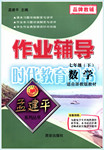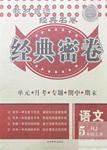题目内容
_________ we must do is _________ the use of energy.
- A.That; to reduce
- B.How; to reduce
- C.What; reduce
- D.That; reduce
解析:
what引导主语从句,作do的宾语;
因主语从句中谓语动词为do,则不定式作表语时可省略to。

 作业辅导系列答案
作业辅导系列答案 同步学典一课多练系列答案
同步学典一课多练系列答案 经典密卷系列答案
经典密卷系列答案“People should have one meat-free day a week if they want to make a personal and effective sacrifice that would help deal with climate change,” the world’s leading authority on global warming has told The Observer.
Dr Rajendra Pachauri, chair of the United Nations Intergovernmental Panel on Climate Change, said that people should then go on to reduce their meat consumption even further.
Pachauri, who was re-elected the panel’s chairman for a second six-year term last week, said diet change was important because of the huge greenhouse gas emissions (排放) and other environmental problems associated with raising cattle and other animals. “It was relatively easy to change eating habits compared to changing means of transport,” he said.
The UN’s Food and Agriculture Organisation has estimated that meat production accounts for nearly a fifth of global greenhouse gas emissions. These are produced during the production. For example, ruminants (反刍动物), particularly cows, give off a gas called methane, which is 23 times more effective as a global warming agent than CO2.
Pachauri can expect some opposite responses from the food industry to his advice, though last night he was given unexpected support by Masterchef presenter and restaurateur John Torode. “I have a little bit and enjoy it,” said Torode. “Too much for any person is bad. But there’s a bigger issue here: where the meat comes from. If we all bought British and stopped buying imported food, we’d save a huge amount of carbon emissions.”
Professor Robert Watson, the chief scientific adviser for the Department for Environment Food and Rural Affairs, said government could help educate people about the benefits of eating less meat, but it should not regulate. “Eating less meat would help, there’s no question about that,” Watson said.
However, Chris Lamb, head of marketing for pig industry group BPEX, said the meat industry had been unfairly targeted and was working hard to find out which activities had the biggest environmental impact and reduce them. “Some ideas were contradictory,” he said. “For example, one solution to emissions from cattle and other animals was to keep them indoors, but this would damage animal welfare. Climate change is a very young science and our view is there are a lot of simple solutions being proposed.”
1.What is directly related to global warming?
|
A.Consumption of meat. |
B.Growth of cattle. |
|
C.Methane from ruminants. |
D.Processing of meat. |
2.Who holds a view opposite to the others’ in the passage?
|
A.Rajendra Pachauri. |
B.John Torode. |
C.Robert Watson. |
D.Chris Lamb. |
3.It is implied in the passage that _____.
|
A.we should try to keep away from cattle |
B.ruminants should not be left outdoors |
|
C.the meat industry will soon close down |
D.we must do our duty to save the earth |
4. Which of the following might be the best title for the passage?
|
A.Less meat, slower global warming |
|
B.More animals, more greenhouse gas |
|
C.Less imported food, better our environment |
|
D.Greater diet change, smaller climate change |